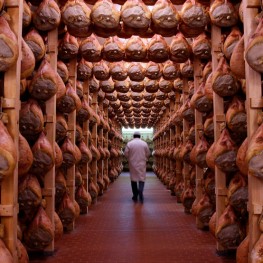INSTRUCTORS:
Address
Università Cattolica View mapCategories
Piacenza, ItalyThis course offers an insight into the diversity of people, regions, food, culture, ways of life in the unique part of Europe that was named the Kingdom of Italy after its unification in 1871. Italy’s strong emphasis on regional organization of society is the focus point in this course; no other European country shows such mastery of combining the concepts of globalization and localization.
The course programme focuses on a crucial development in Europe’s history that still plays a key role in today’s globalizing world: the strong regional identification (localization), by challenging the students to really get to know the ins and outs of the strongly developed rural region of Parma and Piacenza, home of the world-famous cheese and ham industry, and also of the World Centre for Agriculture and Food Security. The course challenges you to discover how this regional focus forms the backbone to both very successful global branding as well as a stable organization of a high standard of living.
Target audience
Students of the social sciences, including economics and business, political sciences, European studies, international relations, history, culture studies and sociology, the sciences and engineering at senior undergraduate or graduate level with an interest in culture, business, society and politics. A general background in social sciences (business) may help, but no specific expertise is required.
Course aim
At the end of this course, students should be able to:
- Describe and evaluate different theories and conceptualisations of the historic development of Europe
- Discern and analyse the European aspects of globalization versus localization
- Demonstrate an understanding of these developments in written and verbal form
Course fee
€1295 (incl. housing)
Course fee includes entrance fees for all field trips that are part of the course programme.
Level
Advanced Bachelor
Study load
12 hours of lectures per week; 12 hours of field trips per week (obligatory part of the course programme); appr. 30 hours of self study per week

